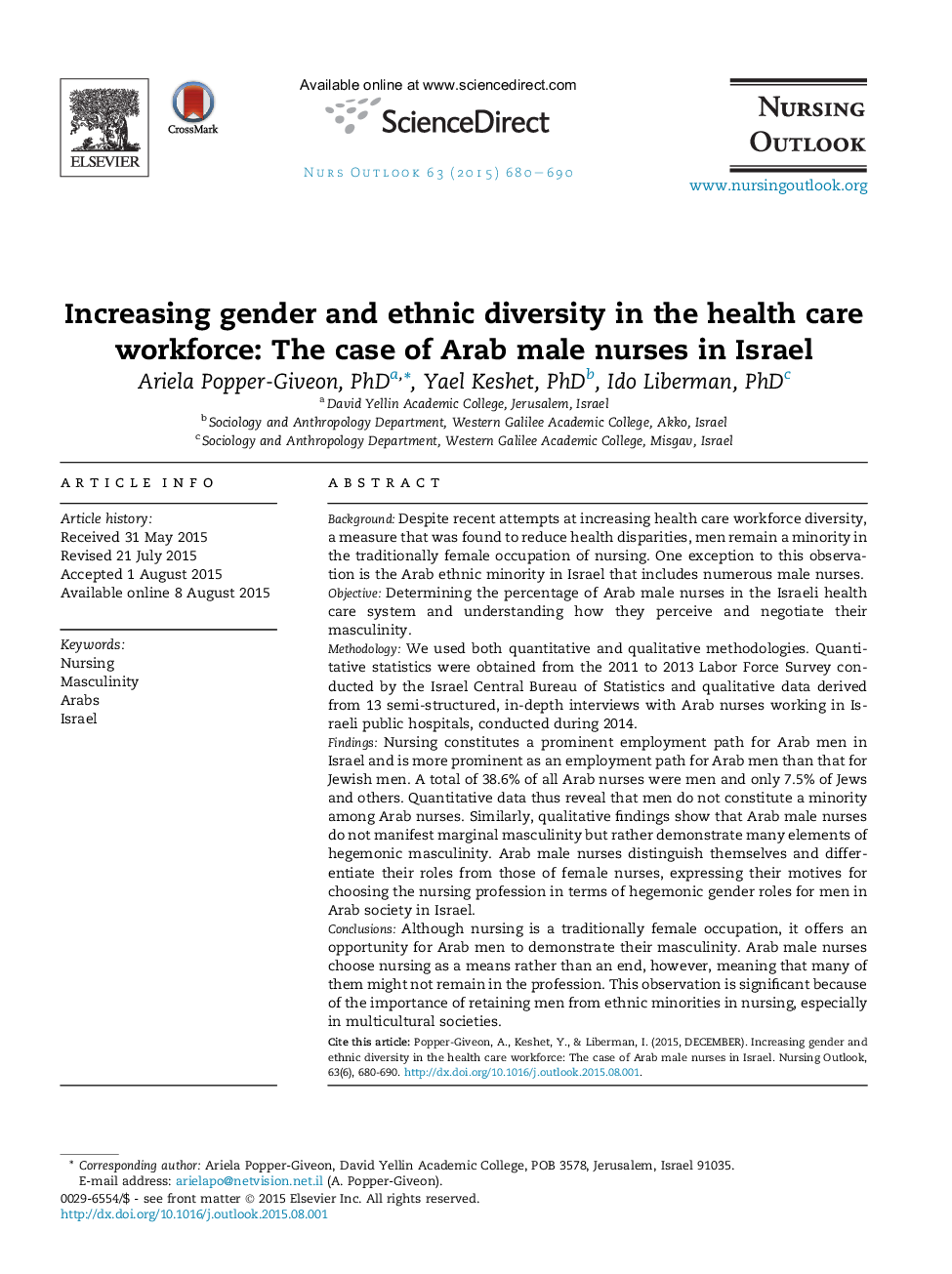| Article ID | Journal | Published Year | Pages | File Type |
|---|---|---|---|---|
| 5870875 | Nursing Outlook | 2015 | 11 Pages |
BackgroundDespite recent attempts at increasing health care workforce diversity, a measure that was found to reduce health disparities, men remain a minority in the traditionally female occupation of nursing. One exception to this observation is the Arab ethnic minority in Israel that includes numerous male nurses.ObjectiveDetermining the percentage of Arab male nurses in the Israeli health care system and understanding how they perceive and negotiate their masculinity.MethodologyWe used both quantitative and qualitative methodologies. Quantitative statistics were obtained from the 2011 to 2013 Labor Force Survey conducted by the Israel Central Bureau of Statistics and qualitative data derived from 13 semi-structured, in-depth interviews with Arab nurses working in Israeli public hospitals, conducted during 2014.FindingsNursing constitutes a prominent employment path for Arab men in Israel and is more prominent as an employment path for Arab men than that for Jewish men. A total of 38.6% of all Arab nurses were men and only 7.5% of Jews and others. Quantitative data thus reveal that men do not constitute a minority among Arab nurses. Similarly, qualitative findings show that Arab male nurses do not manifest marginal masculinity but rather demonstrate many elements of hegemonic masculinity. Arab male nurses distinguish themselves and differentiate their roles from those of female nurses, expressing their motives for choosing the nursing profession in terms of hegemonic gender roles for men in Arab society in Israel.ConclusionsAlthough nursing is a traditionally female occupation, it offers an opportunity for Arab men to demonstrate their masculinity. Arab male nurses choose nursing as a means rather than an end, however, meaning that many of them might not remain in the profession. This observation is significant because of the importance of retaining men from ethnic minorities in nursing, especially in multicultural societies.
